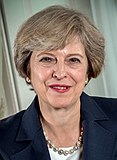The Scottish National Party is a Scottish nationalist and social democratic political party. The party holds 63 of the 129 seats in the Scottish Parliament and 43 out of the 59 Scottish seats in the House of Commons in Westminster. It has 453 local councillors of 1,227.

The politics of Scotland operate within the constitution of the United Kingdom, of which Scotland is a country. Scotland is a democracy, being represented in both the Scottish Parliament and the Parliament of the United Kingdom since the Scotland Act 1998. Most executive power is exercised by the Scottish Government, led by the First Minister of Scotland, the head of government in a multi-party system. The judiciary of Scotland, dealing with Scots law, is independent of the legislature and the Scottish Government. Scots law is primarily determined by the Scottish Parliament. The Scottish Government shares some executive powers with the Scotland Office, a British government department led by the Secretary of State for Scotland.

Angus Struan Carolus Robertson is a Scottish politician serving as the Cabinet Secretary for the Constitution, External Affairs and Culture since 2021. Formerly Depute Leader of the Scottish National Party (SNP) from 2016 to 2018, he has served as the Member of the Scottish Parliament (MSP) for Edinburgh Central since 2021. Robertson previously served as a Westminster MP for Moray from 2001 to 2017, where he served from 2007 to 2017 as the Leader of the SNP in the House of Commons.
In Scotland, the Scottish National Party (SNP) is a left social democratic political party which campaigns for Scottish independence. The SNP has controlled Scotland's devolved legislature since the 2007 election as a minority government, and were a majority government from the 2011 election and have been a minority government, since the 2016 election.

Unionism in Scotland is a political movement which favours the continuation of the political union between Scotland and the other countries of the United Kingdom, and hence is opposed to Scottish independence. Scotland is one of four countries of the United Kingdom which has its own devolved government and Scottish Parliament, as well as representation in the UK Parliament. There are many strands of political Unionism in Scotland, some of which have ties to Unionism and Loyalism in Northern Ireland. The two main political parties in the UK — the Conservatives and Labour — both support Scotland remaining part of the UK.
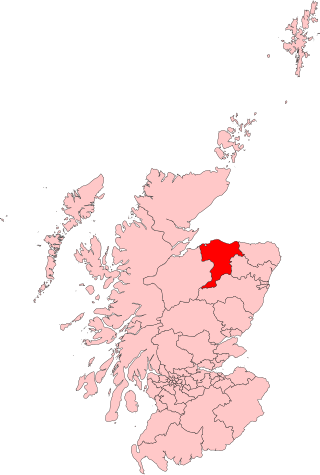
Moray is a county constituency of the House of Commons of the Parliament of the United Kingdom. It elects one Member of Parliament (MP) by the first past the post system of election.
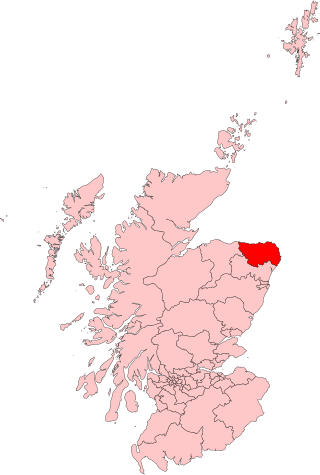
Banff and Buchan is a constituency of the House of Commons, located in the north-east of Scotland within the Aberdeenshire council area. It elects one Member of Parliament at least once every five years using the first-past-the-post system of voting.

Glasgow East is a constituency of the House of Commons of the UK Parliament, located in the city of Glasgow, Scotland. It elects one Member of Parliament at least once every five years using the first-past-the-post system of voting. It is currently represented by David Linden of the Scottish National Party (SNP) who has been the MP since 2017.

East Renfrewshire is a constituency of the House of Commons, to the south of Glasgow, Scotland. It elects one Member of Parliament (MP) using the first-past-the-post system of voting.

Scottish Labour, officially the Scottish Labour Party, is the part of the UK Labour Party active in Scotland. Ideologically social democratic and unionist, it holds 22 of 129 seats in the Scottish Parliament and 2 of 59 Scottish seats in the House of Commons. It is represented by 262 of the 1,227 local councillors across Scotland. The Scottish Labour party has no separate Chief Whip at Westminster.

The Scottish Conservative & Unionist Party is part of the Conservative Party (UK) active in Scotland. It is a centre-right to right-wing, conservative political party. The party's policies in Scotland usually promote conservatism and the continuing of Scotland as constituent country of the United Kingdom. It holds 7 of the 59 Scottish seats in the House of Commons, 31 of the 129 seats in the Scottish Parliament, and comprises 209 of Scotland's 1,227 local councillors.

Scotland has elections to several bodies: the Scottish Parliament, the United Kingdom Parliament, local councils and community councils. Before the United Kingdom left the European Union, Scotland elected members to the European Parliament.

Politics in the Dundee Citycouncil area are evident in the deliberations and decisions of Dundee City Council, in elections to the council, and in elections to the Scottish Parliament (Holyrood) and the House of Commons of the Parliament of the United Kingdom (Westminster).

The 2011 Scottish Parliament election was held on Thursday, 5 May 2011 to elect 129 members to the Scottish Parliament.

The 2007 Scottish Parliament election was held on Thursday 3 May 2007 to elect members to the Scottish Parliament. It was the third general election to the devolved Scottish Parliament since it was created in 1999. Local elections in Scotland fell on the same day.
The 2008 Glasgow East by-election was a by-election for the UK Parliamentary constituency of Glasgow East which was held on 24 July 2008. The election was triggered when, on 30 June 2008, the sitting MP David Marshall stood down due to ill health.

A general election was held in the United Kingdom on 6 May 2010 and all 59 seats in Scotland were contested. The election result in Scotland was unusual in that there wasn't any change of seats from the 2005 general election, although the Labour Party took back two seats that it had lost in by-elections. This was the most recent general election at which the Labour Party won a majority of seats and plurality of votes in Scotland.
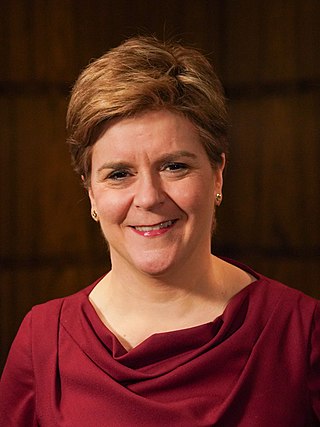
The 2021 Scottish Parliament election took place on 11 May 2021, under the provisions of the Scotland Act 1998. All 129 Members of the Scottish Parliament were elected in the sixth election since the parliament was re-established in 1999. The election was held alongside the Senedd election, English local elections, London Assembly and mayoral election and the Hartlepool by-election.
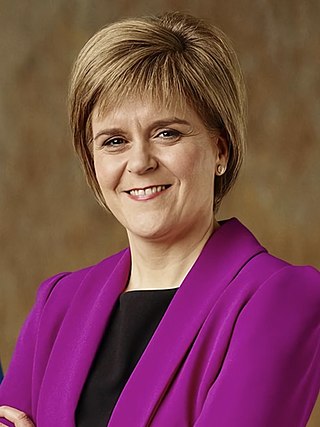
A general election was held in the United Kingdom on 7 May 2015 and all 59 seats in Scotland were contested under the first-past-the-post, single-member district electoral system. Unlike the 2010 general election, where no seats changed party, the Scottish National Party (SNP) won all but three seats in Scotland in an unprecedented landslide victory, gaining a total of 56 seats and taking the largest share of the Scottish vote in sixty years, at approximately 50 per cent. The Labour Party suffered its worst ever election defeat in Scotland, losing 40 of the 41 seats it was defending, including the seats of Scottish Labour leader Jim Murphy and the then Shadow Foreign Secretary Douglas Alexander. The Liberal Democrats lost ten of the eleven seats they were defending, with the then Chief Secretary to the Treasury Danny Alexander and former leader Charles Kennedy losing their seats. The election also saw the worst performance by the Scottish Conservative Party, which received its lowest share of the vote since its creation in 1965, although it retained the one seat that it previously held. In all, 50 of the 59 seats changed party, 49 of them being won by first-time MPs.

Tommy Sheppard is a Scottish National Party (SNP) politician who has been the Member of Parliament (MP) for Edinburgh East since May 2015. He has been SNP Spokesperson for Scotland since 2023. He is a former SNP spokesperson for the Cabinet Office and a former SNP Shadow Leader of the House of Commons. He is also known for founding The Stand Comedy Clubs in Edinburgh and Glasgow.


